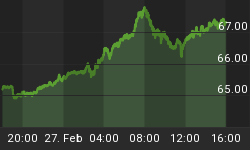As widely expected, the Bank of England (BoE) cut its repo rate another 50bps today, taking it to a record low 1.50%. In its rather terse statement, the bank noted that output is likely to keep falling sharply in the first half of this year, but also cited a "substantial" decline in the pound as helping to offset the impact of a slower global economy. There was no obvious commitment to cut again at the February 5 Monetary Policy Committee (MPC) meeting, which probably explains the small bounce in sterling this morning.
Chart 1
The main policy rate is now lower than during the Great Depression, but will it help? The UK economy is suffering from a bursting domestic property bubble and slumping export demand, at the same time as it is being hit particularly hard by fall-out from the global financial crisis (a reflection of London's prominent role as a major financial center). Real GDP turned negative in Q3 (for the first time since the recession of 1990/91), probably declined more in Q4, and looks set to contract further through 2009. The retail sector is reeling, with the headlines reporting closures and bankruptcies almost daily; unemployment is set to climb sharply this year; and house prices, which dropped 19% last year (according to Halifax) look set to keep falling.
Chart 2
Policymakers and politicians alike are pointing to the need to get the banks lending again. But the BoE's quarterly credit conditions survey last week revealed that lenders had reduced the availability of both secured and unsecured credit in Q4 and expected to cut back further in the coming three months.
Today's policy statement from the BoE said that "further measures" are needed to increase lending to business and consumers, but it did not specify what, and nor did it include any comment on quantitative easing. Boosting money supply would require the approval of the government but Chancellor Darling has dismissed the idea, telling reporters that "Nobody is talking about printing money."
The minutes of today's MPC meeting will be published January 21 and the next BoE quarterly outlook is due February 11. These should give more information on what the policymakers are thinking.















